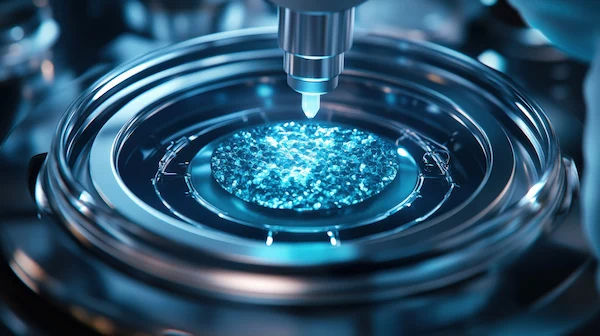First Trimester Pregnancy Diet Guide
Know about what foods to eat and what to avoid during the first trimester of pregnancy. Learn to know the significance of nutrition and manage the first trimester.

Written by Dr. Mohammed Kamran
Reviewed by Dr. D Bhanu Prakash MBBS, AFIH, Advanced certificate in critical care medicine, Fellowship in critical care medicine
Last updated on 13th Jan, 2026

Introduction
Congratulations on your pregnancy! The first trimester (weeks 1–12) is a crucial time for your baby’s development, and eating the right foods can help support a healthy pregnancy. However, morning sickness, food aversions, and fatigue can make it challenging to eat well.
This guide will help you understand the best foods to eat, what to avoid, and simple tips to manage early pregnancy symptoms.
Why Is Nutrition Important in the First Trimester?
During the first trimester, your baby’s major organs (brain, heart, and spine) begin to form. Proper nutrition ensures your baby gets essential vitamins and minerals for healthy growth. Eating well also helps:
Reduce pregnancy complications
Support your energy levels
Ease common discomforts like nausea and constipation
Essential Nutrients for the First Trimester
1. Folic Acid (Folate)
Why it’s important: Prevents neural tube defects (birth defects of the brain and spine).
Sources:
Leafy greens (spinach, kale)
Lentils, beans
Citrus fruits (oranges, lemons)
Fortified cereals
Tip: Doctors often recommend a folic acid supplement (400–800 mcg daily).
2. Iron
Why it’s important: Supports increased blood supply and prevents anaemia.
Sources:
Lean meats (chicken, turkey)
Beans, lentils
Spinach, pumpkin seeds
Fortified cereals
Tip: Pair iron-rich foods with vitamin C (like lemon juice or oranges) for better absorption.
3. Calcium
Why it’s important: Helps build your baby’s bones and teeth.
Sources:
Milk, yoghurt, cheese
Almonds, sesame seeds
Leafy greens (collard greens, bok choy)
4. Vitamin D
Why it’s important: Aids calcium absorption and supports immunity.
Sources:
Sunlight (10–15 minutes daily)
Fatty fish (salmon, sardines)
Egg yolks, fortified milk
5. Protein
Why it’s important: Essential for your baby’s tissue and muscle growth.
Sources:
Eggs, lean meats
Dairy products (Greek yogurt, paneer)
Nuts, seeds, and lentils
6. Omega-3 Fatty Acids (DHA)
Why it’s important: Supports brain and eye development.
Sources:
Fatty fish (salmon, mackerel)
Chia seeds, walnuts
Flaxseeds
Tip: If you don’t eat fish, ask your doctor about a DHA supplement.
Foods to Avoid in the First Trimester
Some foods can harm your baby or increase infection risks. Avoid:
- Raw or undercooked meat/fish (risk of bacteria)
- Unpasteurized dairy/cheese (may contain harmful bacteria)
- Raw eggs (risk of salmonella)
- High-mercury fish (shark, swordfish, king mackerel)
- Excess caffeine (limit to 200 mg/day—about 1 cup of coffee)
- Alcohol and smoking (strictly avoid)
Consult specialist for Personalised Advice
Managing Common First Trimester Symptoms with Diet
1. Morning Sickness (Nausea & Vomiting)
To manage the symptoms, follow:
Eat small, frequent meals (every 2–3 hours).
Try bland foods like toast, crackers, or bananas.
Sip ginger tea or lemon water.
Avoid greasy, spicy, or strong-smelling foods.
2. Fatigue
To reduce fatigue, follow:
Eat iron-rich foods to prevent anaemia.
Include complex carbs (oats, whole grains) for steady energy.
Stay hydrated (dehydration worsens tiredness).
3. Constipation
To deal with constipation, include:
Drink plenty of water.
Eat fibre-rich foods (whole grains, fruits, vegetables).
Include probiotics (yoghurt, buttermilk).
4. Food Aversions & Cravings
Listen to your body, but avoid excessive junk food.
Find healthier alternatives (e.g., frozen yoghurt instead of ice cream).
Sample First Trimester Meal Plan
Find below the first trimester meal plan
Breakfast: Oatmeal with chia seeds + banana + milk
Mid-morning snack: Handful of almonds + orange
Lunch: Roti + dal + spinach sabzi + yogurt
Evening snack: Ginger tea + whole wheat toast
Dinner: Grilled salmon/quinoa + steamed vegetables
Before bed: Warm milk with turmeric
When to Consult a Doctor?
If you experience:
- Severe nausea/vomiting (hyperemesis gravidarum)
- Extreme fatigue or dizziness
- Unusual cravings (like dirt or chalk—could indicate a deficiency)
Final Thoughts
Eating well in the first trimester sets the foundation for a healthy pregnancy. Focus on nutrient-dense foods, stay hydrated, and listen to your body. Small, frequent meals can help manage nausea, while balanced nutrition keeps your energy up.
Consult specialist for Personalised Advice
Consult specialist for Personalised Advice

Dr. Sanjan Das
Obstetrician and Gynaecologist
15 Years • MBBS,MS
Bengaluru
Apollo Clinic, Sarjapur Road, Bengaluru

Dr. Sreeparna Roy
Obstetrician and Gynaecologist
8 Years • MBBS , MS (OBSTETRICS & GYNAECOLOGY), Fellowship in Infertility, Endoscopy & Ultrasonography), Fellowship in Laparoscopy & Hysteroscopy,DRM
Barasat
Diab-Eat-Ease, Barasat

Dr. Rituparna De
Obstetrician and Gynaecologist
7 Years • MBBS, MS (Obstetrics & Gynaecology)
Kolkata
MCR SUPER SPECIALITY POLY CLINIC & PATHOLOGY, Kolkata

Dr. Sreeparna Roy
Obstetrician and Gynaecologist
8 Years • MBBS , MS (OBSTETRICS & GYNAECOLOGY), Fellowship in Infertility, Endoscopy & Ultrasonography), Fellowship in Laparoscopy & Hysteroscopy,DRM
Kolkata
Dr Utsa Basu Clinic, Kolkata
Dr. K Anusha
Obstetrician and Gynaecologist
4 Years • MBBS, DGO
Yemmiganur
SRINIVASAA HOSPITAL, Yemmiganur




